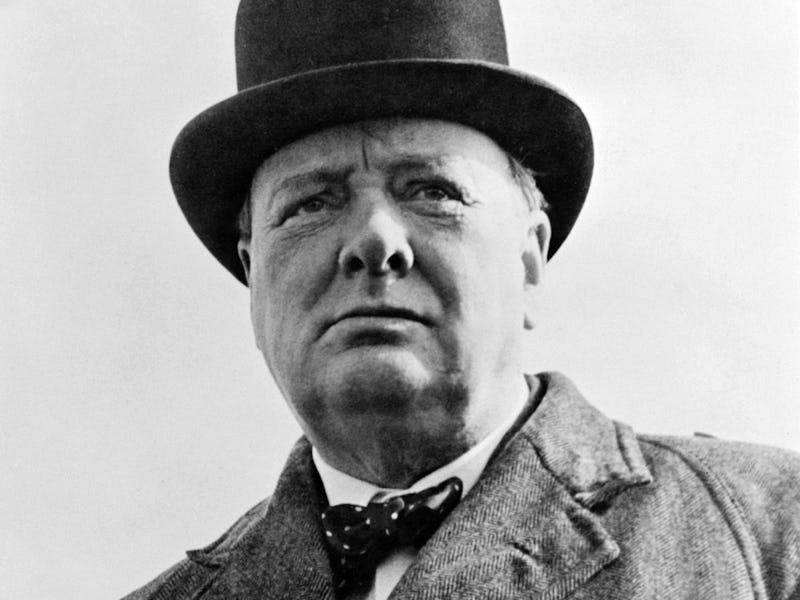Why Winston Churchill's MIT Graduation Speech Still Resonates
His cautionary words about science were uncannily prophetic.

In 1949 — some 66 graduation seasons ago — Winston Churchill was invited to deliver the keynote address at MIT’s mid-century convocation. Taking place in the middle of the Berlin Blockade, his sweeping, magnificent speech condensed fifty years of world history into a thorough and cautionary analysis of the fledgling Cold War, but, thanks to his unwavering belief that science should be used to do good, his tone remained optimistic. “Even in this darkling hour,” he told the crowd, “I have faith that this will go on.”
Revisiting Churchill’s speech today reveals it to be eerily prophetic; his thoughts on science’s role in world hunger and weaponry ring truer now than they ever did before.
Churchill came to America to praise the native focus on supporting the education of future scientists and engineers ready to drive industrial production while improving the quality of life worldwide. According to a 2014 analysis of education data by ScienceInsider, we’re handing out STEM degrees by the hundreds of thousands and are well on our way to exceeding one million new grads by the end of the decade. But what are they doing with their degrees? In his speech, Churchill morally obligated the young scientists in his audience to apply their work toward social good, like solving world hunger:
If, with all the resources of modern science, we find ourselves unable to avert world famine, we shall all be to blame, but a peculiar responsibility would rest upon the scientists. I do not believe they will fail, but if they do, or were not allowed to succeed, the consequences would be very unpleasant because it is certain that mankind would not agree to starve equally, and there might be some very sharp disagreements about how the last crust was to be shared. This would simplify our problem in an unduly primordial manner.
Many of today’s scientists are indeed involved in the endless dilemma of feeding the growing global population. Unfortunately, their work in important fields, such as plant genetics and crop development, is hindered by a range of factors that have developed in the years since Churchill’s speech: rapidly rising temperatures, dwindling resources, and societal backlash against GMOs, to name a few. He was right about our refusal to starve equally, though. According to the World Food Programme, the vast majority of the world’s hungry are living in developing countries, where over 13.5% of the population is undernourished. Meanwhile, the typical American family throws out $1,600 worth of food per year.
In his speech, Churchill also addresses the role of science in weaponry and warfare. Fresh off the heels of the WWII, society was reeling from the “hideous mechanical slaughter” caused by submarines, planes, and the atomic bomb. It’s in discussing war and man’s abuse of power that he gets especially cautionary: “Science bestowed immense new powers on man and at the same time created conditions which were largely beyond his comprehension and still more beyond his control.”
Over sixty years later, we’re still engaging in warfare, and we’re pretty much still using the same weapons, except we’ve added drones to that list.
The first airplanes, Churchill said in his speech, were gifts bestowed upon an “immature civilization,” which jumped at the chance to dominate the skies for aggression’s sake; when it comes to drones, we’re equally immature, and we’re in the midst of deciding how we’re going to apply this new technology.
Later in his speech, Churchill says, “Our inheritance of well-founded slowly conceived codes of honour, morals and manners, the passionate convictions which so many hundreds of millions share together of the principles of freedom and justice, are far more precious to us than anything which scientific discoveries could bestow.” His insistence that the humanities and sciences go hand in hand is especially poignant today, as innovations in technology develop more rapidly than we can develop policies to regulate them.
If Churchill delivered this address today, his words would resonate just as much — if not more — now than they did then. The question is: Would we listen?